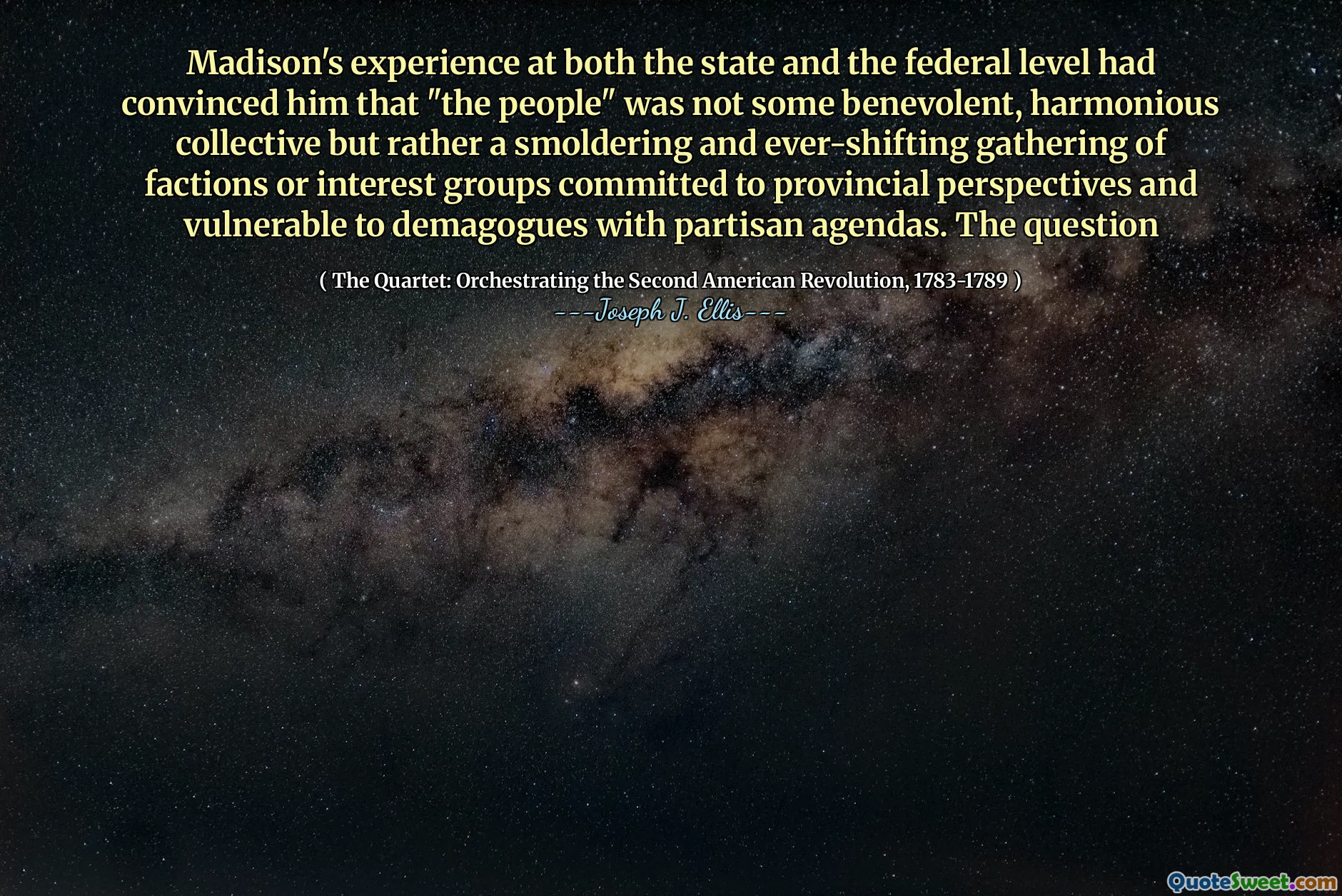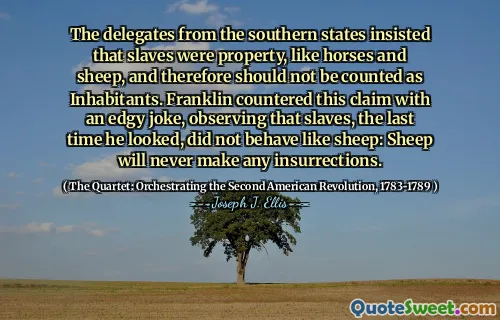
Madison's experience at both the state and the federal level had convinced him that "the people" was not some benevolent, harmonious collective but rather a smoldering and ever-shifting gathering of factions or interest groups committed to provincial perspectives and vulnerable to demagogues with partisan agendas. The question
In Joseph J. Ellis's book "The Quartet: Orchestrating the Second American Revolution, 1783-1789," Madison reflects on his political experience, which shaped his understanding of the people as a fragmented body rather than a unified entity. He viewed the populace as a volatile collection of factions, each driven by narrow interests and susceptible to manipulation by ambitious leaders pursuing partisan goals.
This perspective led Madison to advocate for a system that could balance these competing interests and guard against the dangers posed by demagogues. His insights highlight the complexities of governance in a diverse society and the need for institutions that can withstand the pressures of factionalism while promoting stability and deliberation.











